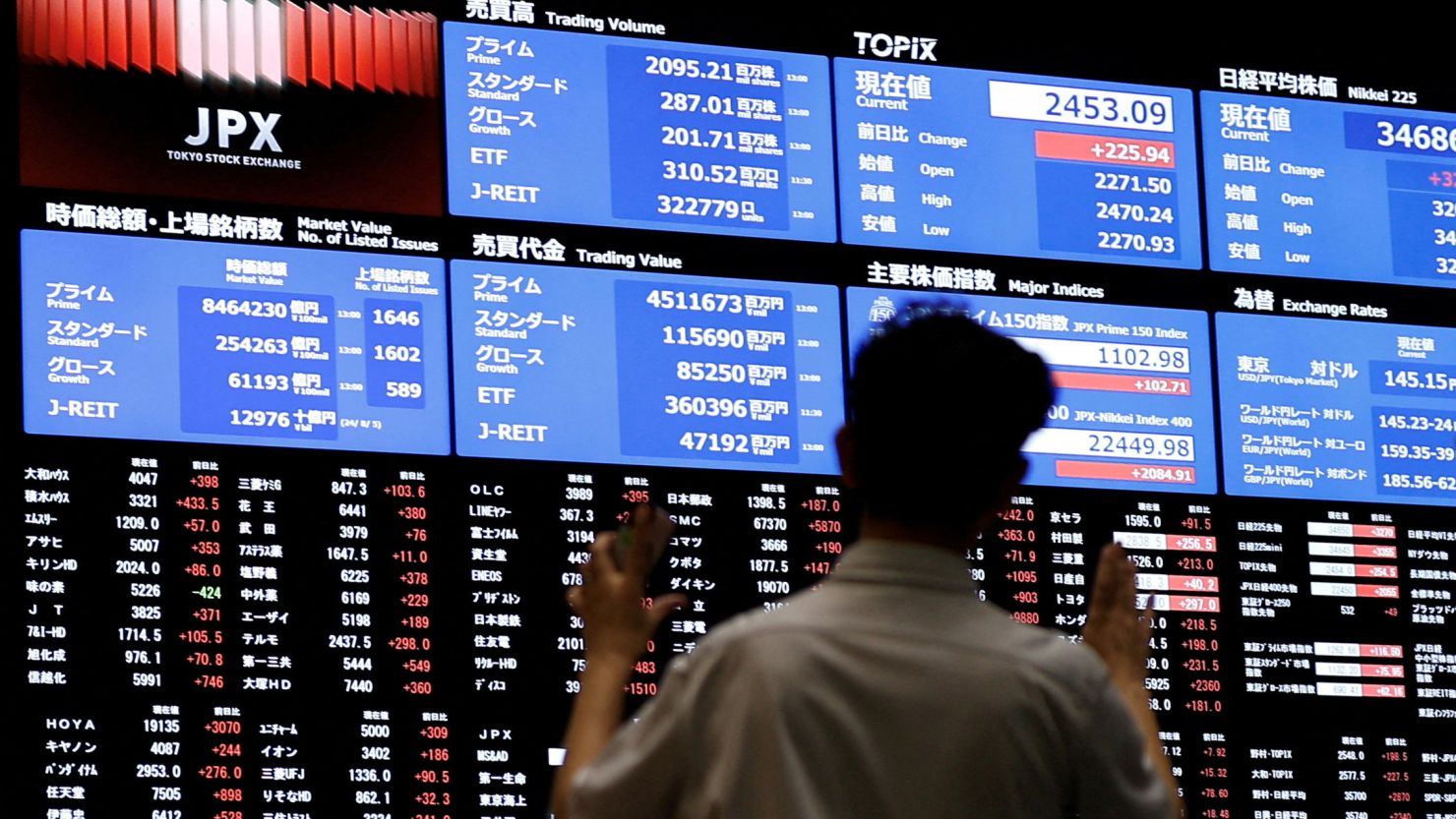Asian stock markets fell sharply on Monday after U.S. President Donald Trump imposed tariffs on Canada, Mexico, and China, escalating global trade tensions. The move has raised fears of economic disruption, with investors bracing for a period of uncertainty that could impact corporate earnings and slow global growth.
Canada and Mexico, facing 25% tariffs on exports to the U.S., have vowed to retaliate, while China, hit with a 10% levy on its goods, has promised “corresponding countermeasures” and plans to challenge the decision at the World Trade Organization. The tariffs, according to Trump, are aimed at curbing illegal drug flow and immigration into the U.S., though critics argue they could further strain relations with the country’s top trading partners.
Following the announcement, Asian markets reacted negatively. Hong Kong’s Hang Seng Index dropped 0.4%, Japan’s Nikkei 225 fell 2.6%, South Korea’s Kospi plunged 2.5%, and Australia’s ASX 200 declined by 1.8%. Mainland Chinese markets remained closed for the Lunar New Year holiday, limiting the immediate response from investors there.
Meanwhile, currency markets also experienced significant shifts—the U.S. dollar strengthened to a record high against China’s yuan, while the Canadian dollar sank to its lowest level since 2003.
Financial analysts warn that the escalating trade tensions could have long-term consequences.
“The prospect of having a long and protracted trade spat between the world’s two biggest economies is causing investors to take risk off the table today,” said Tim Waterer, chief market analyst at financial services firm KCM Trade.
“The other worry for investors is which countries may be on Trump’s tariff hit list next.”
Trump has already hinted that the European Union could be targeted “pretty soon.” Charu Chanana, chief investment strategist at Saxo Bank, noted that while tariffs may offer short-term benefits to the U.S. economy, they could ultimately weaken the dollar’s global influence by encouraging other countries to reduce reliance on the U.S.
“Repeated use of tariffs would incentivize other countries to reduce reliance on the US, weakening the dollar’s global role,” Chanana added.
The U.S. president is set to discuss the tariffs with Canadian and Mexican leaders on Monday before they take effect at midnight on Tuesday. With growing uncertainty in global markets and potential retaliatory actions from affected countries, investors remain on edge as they await further developments in the trade dispute.






